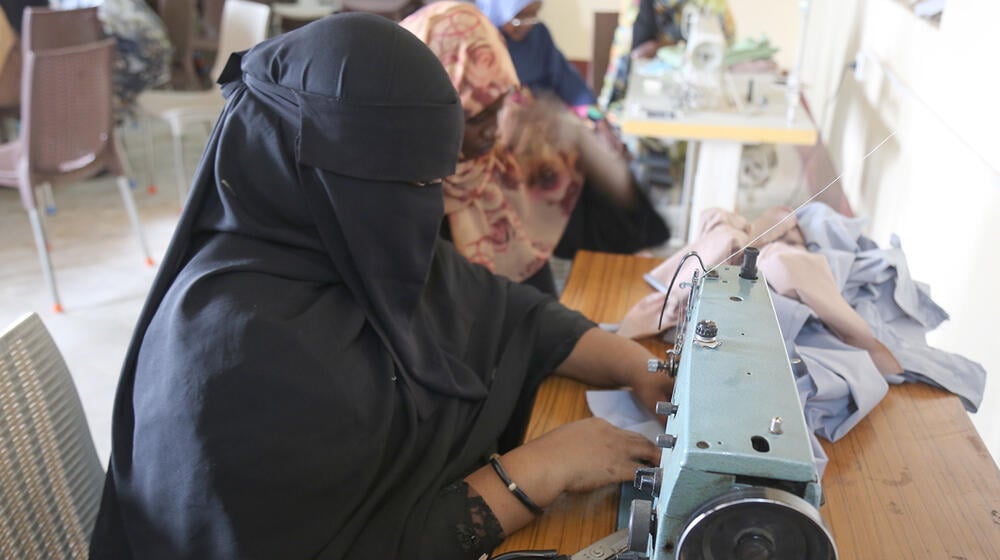Mama Hinna, 45, is a kindergarten teacher from Ad Damazin, Blue Nile State. She lives in a community where many women face violence in the workplace, and where the general safety of women and girls is a major concern.
“Men think that women only work if they are in desperate need of money. They try to take advantage of the situation, harass and assault us -knowing that there is nothing we can do because we have no other options.” Mama Hinna.
The problem women face in the community is a lack of sustainable means of income. Women need to exercise caution when looking for or choosing a job in order to protect themselves and their families.
In August, Mama Hinna was introduced to the Women Center in Hai Al-Qassam in Ad Damazin (Funded by Sweden), where UNFPA is supporting the Woman and Child Department of the state Ministry of Health and Social Welfare to implement income-generating activities. Mama Hinna participated in a 15-day sewing workshop aimed at providing women with an income-generating skill that can be utilized at home or at the Women’s Center.
The Women's Center has 4 sewing machines that are used by 10-12 participants per workshop to sew school uniforms for girls and boys. At the end of the 15-day workshop, the sewn uniforms are given to the women, who can proceed to selling them. An allowance is also provided to the participants in order to help them start a business. Moreover, participants are encouraged to come back to the center at any time to use the sewing machines until they can afford to purchase their own.
“My plan is to start a business with the allowance I will receive at the end of the workshop and then purchase more materials from my first round of profits. This will allow me to become financially independent without having to work with people who might want to take advantage of me. I can finally afford to pay for my daughter’s university education.” Mama Hinna
UNFPA has been supporting income-generating activities in the Women’s Center since 2018 and has trained 30 women in 2021 through three separate sewing workshops. Participants are nominated by the local community based on their level of need. The Center receives support from Save the Children and UNHCR, and is run with a strong sense of community ownership.
“This center is for our women. Our community here is mostly made up of people who flee from the south of Blue Nile because of the conflict. More displaced people are coming to this area, and the needs are going to increase.” Ibrahim, Women Center Manager.
UNFPA recognizes the challenges that women face even after completion of the workshop with regards to marketing their products and generating a revenue stream. Close individual follow up and a potentially increased end-of-training allowance would be beneficial to ensure that women partaking in the income-generating activities are able to afford new sewing materials and sustain their small start-ups. Furthermore, UNFPA sees an opportunity to expand such income-generating activities to include more skills that have market relevance. Among the trades that participants at the Women’s Center have expressed interest in are soap making, cell phone repairs and tuk tuk driving.


